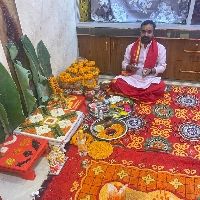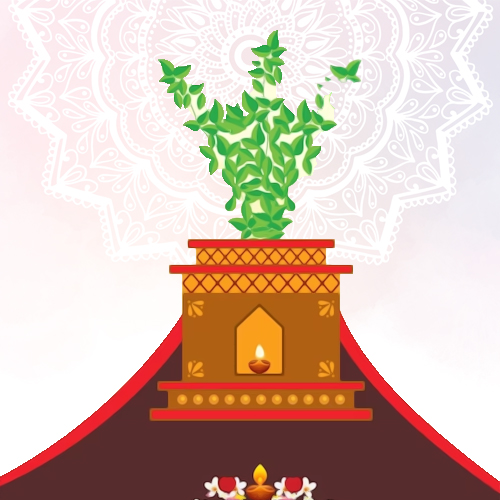

Don't want to choose a Pandit?
Book a Package with Poojat
- Dakshina
- Pooja Samagri
Pandit for Tulsi Vivah


8541 Bookings


9579 Bookings


3735 Bookings


6013 Bookings


4605 Bookings


6217 Bookings
Confused ?
Which pandit to choose for your rituals? We can help you to decide for the best. Please share your details and our team will get back to you.


3503 Bookings


4118 Bookings


9700 Bookings


3419 Bookings


5489 Bookings


9412 Bookings


8344 Bookings


4495 Bookings


7960 Bookings


3514 Bookings


4810 Bookings


6689 Bookings


7839 Bookings
Pooja's FAQ
Tulsi Vivah is a ceremonial marriage of the Tulsi plant to a deity, usually Lord Vishnu or Krishna. The ritual symbolizes the end of the monsoon and the beginning of the wedding season in Hinduism.
Tulsi Vivah is usually celebrated on the Ekadashi (11th day) of the waxing moon in the month of Kartik, which falls between October and November.
Tulsi is considered a sacred plant in Hinduism, associated with purity and devotion. The marriage of Tulsi to Lord Vishnu or Krishna is believed to bring prosperity, happiness, and spiritual well-being to the household.
The ceremony involves the symbolic marriage of a Tulsi plant to an idol or image of Lord Vishnu or Krishna. The rituals include prayers, recitation of mantras, circumambulation (parikrama) of the Tulsi plant, and the tying of a cotton thread or a silk cloth around the plant.
Yes, Tulsi Vivah is also performed in temples. Temples with a dedicated Tulsi garden or shrine may organize special events and rituals for devotees to participate in the marriage ceremony.
Certainly, you have the flexibility to alter the date and time of the pooja. Kindly get in touch with POOJAT customer care for coordination.
After booking a pooja with a pandit or temple, you will receive the pandit's contact number in the booking section. Feel free to reach out to confirm details and discuss any specific requirements.
 Add Temple
Add Temple
 Hindi, Sanskrit
Hindi, Sanskrit

 New Delhi
New Delhi

